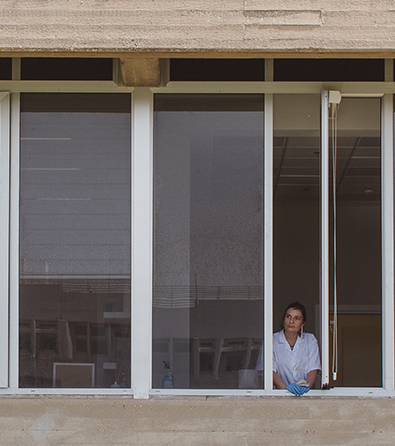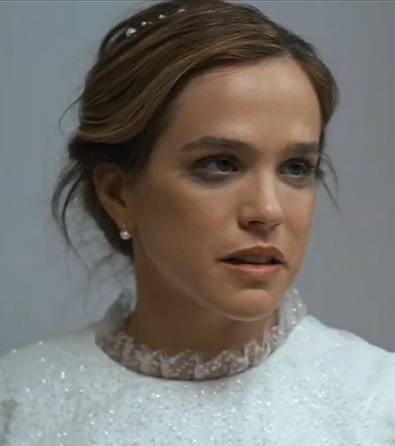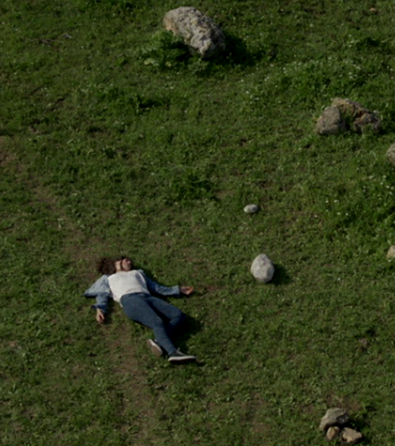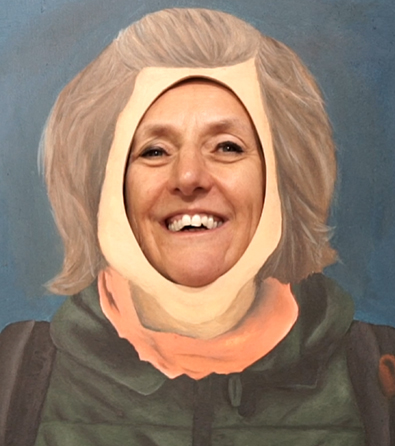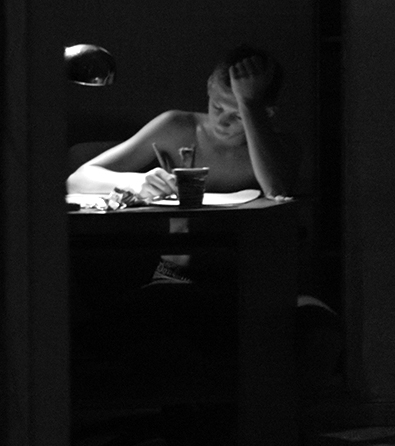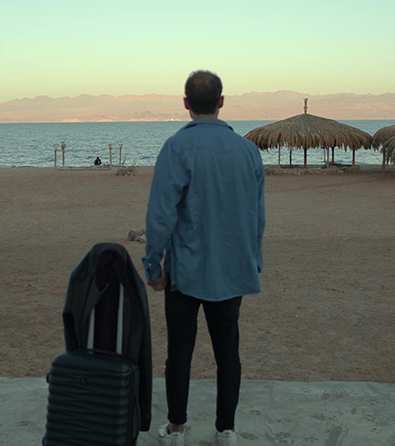The short film Paradise (33 minutes) is available at the top of the page.
* To watch this film, please approve YouTube/Vimeo cookies via the blue cookie icon at the bottom left of the screen
Throughout Paradise, a short film directed by Asaf Saban and set primarily along the beaches of Sinai in Egypt, the characters repeatedly notice black smoke rising above the distant mountain peaks. At one point, the film’s protagonist, Ali, asks a local about the smoke. The Egyptian smiles and explains that it is merely the result of burning garbage, not a terror incident. This humorous moment, which diffuses the tension that had built around the smoke, a tension familiar to many Israeli Jewish tourists in Sinai, distills the key messages of Saban’s film: boundaries we perceive as clear-cut are often more blurred than they seem, and what appears foreign or threatening can, from another perspective, seem entirely innocent.
This scene, rooted in the lingering fear of past terror attacks against Israeli tourists in Sinai, reflects an anxiety that the Israeli characters struggle to put aside and reveals another timely dimension of the film. It clearly belongs to a moment before the October 7, 2023, massacre in Israel. As someone who returned from Sinai less than a day before that horrific Saturday, I feel that if the film had been made today, it would have been an entirely different work, carrying a much darker tone.
The film’s plot follows Ali (played by actor Ala Dakka), a young Israeli Arab man who has been living in Berlin in recent years and returns to Israel for his sister’s henna ceremony and wedding. After receiving a cold and suspicious reception from airport security, Ali decides to skip his family’s celebrations and retreat to the beaches of Sinai. Once in Egypt, he hitches a ride with a group of young Israeli travelers, including a woman named Avigail. When asked his name, he answers “Eli” instead of Ali, a name commonly associated with Israeli Jews. What begins as a harmless lie gradually turns into an act of deceit and a deliberate concealment of his true identity.
Saban has directed several acclaimed and award-winning short films, as well as two outstanding feature films: Outdoors (2017) and Delegation (2023). Although the subjects of his films vary widely, they are thematically and aesthetically interconnected. One recurring motif is the importance of setting. Saban consistently anchors his narratives in specific, singular locations that are integral to the story, as if the events could not unfold anywhere else.
For example, his first feature film, Outdoors, follows a couple struggling with the emotional and logistical challenges of building their dream home in the Galilee. The house gradually takes shape, both before their eyes and the viewer’s, and comes to function almost as a character in its own right. Delegation takes place during an Israeli high school trip to Poland, where students tour Second World War extermination camps and memorial sites, yet remain absorbed in the personal romantic dramas characteristic of their age.
In Paradise, the story unfolds in Sinai, where the location serves as more than a backdrop. The peninsula becomes an inseparable part of the narrative, along with the contradictions it embodies. It is part of Egypt, yet filled with Israelis; culturally and geographically close to Israel, yet also distant; tense, yet peaceful. This liminal, threshold space, described as “neither here nor there,” is what enables the protagonist’s act of identity concealment. It also gives the film a dreamlike, detached atmosphere, as if things could happen there that would not be possible in more clearly defined places on either side of the border. Even the few scenes that do not take place on the beach unfold in similarly ambiguous spaces, such as Ben Gurion Airport, which Saban also filmed in for his short film Blessed Is the Man and his feature film Delegation.
Israeli cinema has long engaged with the theme of identity fusion, particularly between Jewish and Arab identities. One of the most notable examples is the film “Avanti Popolo” (1986, directed by Rafi Bukai), which tells the story of two Egyptian soldiers who lose their way in the Sinai desert during the Six-Day War and join a group of Israeli soldiers. The film features surreal moments in which the Egyptians symbolically “become Jews,” all within the same desert landscape where Saban’s film takes place.
Another example of this blending of identities is “The Band’s Visit” (2007, directed by Eran Kolirin), a film that has become emblematic of this recurring motif in Israeli cinema. In it, an Egyptian police orchestra unexpectedly spends a weekend in a fictional, forgotten Israeli town. The story echoes similar themes: Jews and Egyptians, who initially seem entirely different, gradually draw closer until the distinction between them nearly disappears. At a certain point, they appear to share a single identity. This theme is reinforced by the casting of Sasson Gabai, a Jewish Israeli film star, as the head of the Egyptian orchestra.
In Paradise, Saban revisits familiar thematic territory, though in a slightly different way. The collaboration with Nayef Hammoud on the screenplay, together with the excellent casting of Ala Dakka as Ali, who adopts the identity of “Eli” with such subtlety that his original self seems to fade, allows the film to explore questions of identity and belonging with nuance and emotional depth.
As in those earlier films, Paradise also presents a merging of identities that ultimately collapses by the end. Ali’s fantasy bubble bursts, just as in Avanti Popolo, where the Egyptian soldiers are shot and killed in the final scene, and in Kolirin’s film, where the orchestra parts ways with the town’s residents and returns home across the border. In Paradise, Ali comes to realize that in the current reality and prevailing atmosphere, one cannot escape their identity. He ends up alone, just as he began the film.
As part of a cinematic tradition that explores the relationships between Arabs and Jews in Israel through fantasies of identity fusion that ultimately unravel, Asaf Saban’s Paradise is a short yet multilayered and poignant work. It is both humorous and melancholic, and superbly performed, scripted, and directed. By the end of the film, I couldn’t help but wish it had continued and evolved into a feature-length exploration of Ali’s character.

